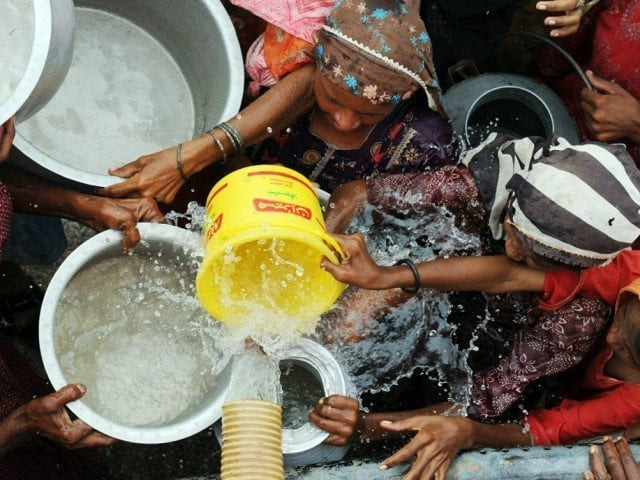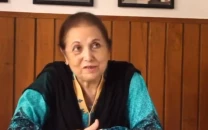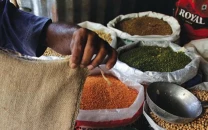Save water, for there is no more where it comes from
Hisaar Foundation chairperson says the only way to make more water available is to recycle it

Hisaar Foundation chairperson says the only way to make more water available is to recycle it. PHOTO: AFP
Kamal speaks from experience. Trained at Cambridge University, Kamal has 35 years of experience in the fields of environment, water and women development. She is the founder and chairperson of the Hisaar Foundation, a not-for-profit organisation working for water, flood and livelihood security.
Pakistan could become region's most water-stressed country by 2040: report

Speaking to The Express Tribune about sustainable solutions for Pakistan's water dilemma, Kamal said the only way to make more water available is to recycle it. Some cities use the same water seventeen times before it's dumped in the sea, she pointed out. "The water in the system around the world remains the same. The only water that goes out is that which is extremely polluted," she said.
Kamal believes that the city's planners need to be mindful of the technology that they use. "You can use a metallic plant on the Karachi coast but where will it lead you?" she questions, before answering it herself. "It will corrode in no time. What solution may be right for Dubai may not be right for us," she said. With regards to the water issues faced by Pakistan, Kamal explained the upstream and downstream problem with Punjab and Sindh. "Every river in the world has an upstream and downstream, so there is nothing unique about Sindh and Punjab. Everywhere, special safeguards are in place for those living at the downstream," she explained. "First we must ensure that the rivers are kept flowing. If you let them dry up, as we do with the Indus, the sea will keep on intruding and that's not helpful," she said.
Rapid groundwater depletion threatens Pakistan food security: officials
For the geographer, the law that nobody can take from the canals is a good one; provided it is implemented. "Those who are powerful take water from canals. Everyone must pay for the water that they use, apart from drinking water, which should be free," she said. "The agriculture sector should pay taxes. The mess of the irrigation system that we find ourselves in is because no one wants to pay for repairs. This is because there is not much kickback in the repairs," she said.
Karachi's water problem
For Kamal, Karachi's water problem can be resolved only through government reforms. "The Karachi Water and Sewerage Board (KWSB) manages more water than a hundred countries of the world, if one is to look at the population of Karachi," she said.
The mafias, especially the water mafia, are allowed to operate in Karachi because nobody owns the city politically. "The Sharifs own Lahore and look what they are doing. They are, at least, building their city," she said, adding that politics has a direct impact on how water is made available. "All large cities of the world are managed by single mayors and this is how Karachi should be managed too," she claimed.
First water management policy on the cards
Shedding light on her foundation's proposed water-saving guidelines (separate for households, schools and mosques), she said that if they could be adopted in Karachi, millions of gallons would be saved. Lamenting the lack of interest for such measures in the affluent areas of the city, she said it is not that the rich do not understand, it is just that they do not care. "You can tell slum and apartment dwellers and people from middle-class households to save water and they listen. But you tell the rich and they don't understand. If they can save water, they will take less from the system."
Contrary to popular belief that it is the government that is the root of all problems, Kamal insists that it is the citizens who are also wrong. "Just like the citizens should hold the government responsible, it should also be applied vice versa," she said.
Published in The Express Tribune, November 16th, 2015.



















COMMENTS
Comments are moderated and generally will be posted if they are on-topic and not abusive.
For more information, please see our Comments FAQ